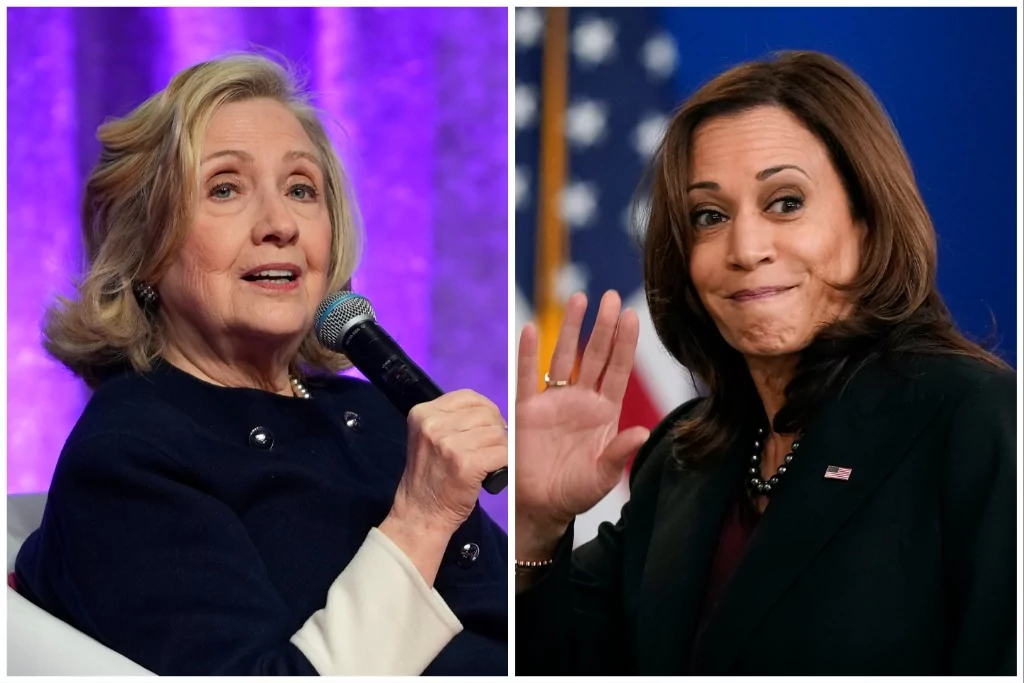

Democrats are heading into their convention with a new nominee and a renewed sense of confidence.
But after 2016, Democratic delegates and strategists do not want to take Vice President Kamala Harris‘s momentum for granted.
Democrats realize the support for Harris and vice presidential nominee Gov. Tim Walz (D-MN) will only persist if the public considers them to be in their corner, according to California delegate and former Golden State party adviser Bob Mulholland.
“Many sleepless nights ahead and no naps for any of us,” Mulholland told the Washington Examiner from Chicago.
Colorado delegate Jeri Shepherd conceded Democrats “learned the hard way” about complacency in 2016, with then-nominee Hillary Clinton‘s surprise loss to former President Donald Trump.
“My significant other lives in Wisconsin and usually votes Dem though not into party politics at all,” Shepherd told the Washington Examiner. “In 2016, he kept asking me, ‘Where’s Hillary?’ He was referring to her absence there and in other Rust Belt states. The day after the election, he pretty much said, ‘I told you so.’”
New York delegate Mark Poloncarz also remembered Wisconsin, which Trump won by less than a percentage point, or 23,000 votes, after Clinton did not travel to the Badger State in the closing months of her campaign.
“Knowing the individuals who are involved in the [Harris] campaign on a day-to-day basis, having talked to them, they understand that they’re leaving no stone unturned,” the Erie County executive told the Washington Examiner. “I have great respect for Sen. and Secretary Clinton. She came in with a lot of baggage that no other candidate probably will ever have just because of the issues dealing with the Clintons throughout the years and the attacks that were leveled on her, most of them unfairly. So I just see it as a different atmosphere. I believe America is ready for its first woman president.”
Inside Elections editor and publisher Nathan Gonzales agreed Harris could be distinguished from Clinton, sharing a video of despondent Democrats from almost eight years ago today.
“After packing the Javits Center on election night for Hillary Clinton’s victory party in 2016, I think Democrats know the race isn’t over until all the votes are counted,” Gonzales told the Washington Examiner.
Sabato’s Crystal Ball managing editor Kyle Kondik contended Clinton’s campaign tried to expand Democrats’ traditional map but was unable to defend the blue wall states of Michigan, Pennsylvania, and Wisconsin.
“Now, maybe if she had done 20 events [in Wisconsin], it wouldn’t have made a difference,” Kondik told the Washington Examiner. “But I think what happened in Wisconsin and Michigan caught them by surprise.”
Two election cycles later, polls indicate Harris has expanded President Joe Biden‘s map from the blue wall to the Sun Belt, with states including Arizona, Georgia, Nevada, and North Carolina potentially back in play. Surveys even suggest Senate races that were once leaning toward the Republican candidate are now toss-ups or leaning toward the Democratic contender.
Democratic strategist Stefan Hankin joked that asking him whether the party is worried about overconfidence is “like asking someone eating an ice cream if they are concerned about calories.”
“Sure the correct answer is yes, but let me enjoy my ice cream,” Hankin told the Washington Examiner.
But although Hankin did concur overconfidence can be a problem, he said, “In this case 2016 is not so far behind us that there is going to be full unadulterated confidence without concern.”
“2022 was different in that the confidence in the ‘red wave’ was not adjusted for the fact that Roe [v. Wade] was overturned and there was a systemic shift in the motivations of the electorate,” the Lincoln Park Strategies president added. “The change to Harris taking over the top of the ticket so far has been positive, but I don’t know any Democrats who are viewing this as a sure thing. Three months is a long time, and this has moved from a likely loss to a race that is at worst competitive and at best slightly leaning in the Dem’s direction.”
Former Senate Majority Leader Chuck Schumer (D-NY) aide Christopher Hahn reiterated he always advises candidates against overconfidence, no matter the circumstances.
“If this year has taught us anything, it’s to not get too comfortable,” Hahn told the Washington Examiner. “In 2022, the GOP was a victim of being stuck in their own feedback loop. They didn’t see how bad the Dobbs [v. Jackson Women’s Health Organization] decision was for them. In 2024, it still is and it may even be worse.”
For Kondik, of Sabato’s Crystal Ball at the University of Virginia Center for Politics, the better question related to overconfidence is whether it leads Democrats to make their own bad decisions.
“I don’t really see any signs of overconfidence in terms of how the Democrats are acting right now — they seem pretty focused on the states and districts that are likely to decide this thing,” he said. “I think we saw some signs of Republican overconfidence in the weeks before Biden got out, but their focus seems to be on the most logical places now too.”
University of Maryland Center for Democracy and Civic Engagement Director Michael Hanmer similarly warned about the prospect of a Democratic feedback loop regarding Harris’s polling.
“The candidates and campaigns use the poll results in their fundraising efforts all the time,” Hanmer told the Washington Examiner. “Regular people use them as well. Some can get charged up, others can get complacent, others could feel defeated. So, I think we all have to be careful about using polls to predict behavior since they are just a snapshot at a given time and that snapshot affects what the next picture looks like.”
“My sense is that campaigns are well aware that polls can make some potential voters complacent and overconfident,” the government and politics professor wrote. “In part, that is why you see so much discussion from candidates about the race being close or them being the underdog.”
CLICK HERE TO READ MORE FROM THE WASHINGTON EXAMINER
Regardless, New York delegate Michaelle Solages underscored that Democrats are ready “to get this across the finish line” before November.
“This is new energy that I haven’t even seen in 2016 or under [former President Barack] Obama,” Solages, a New York state lawmaker, told the Washington Examiner. “I feel like there’s like a newfound energy that I haven’t seen before but also a determination to get this across the finish line because we’ve seen it slip through our fingers before.”





